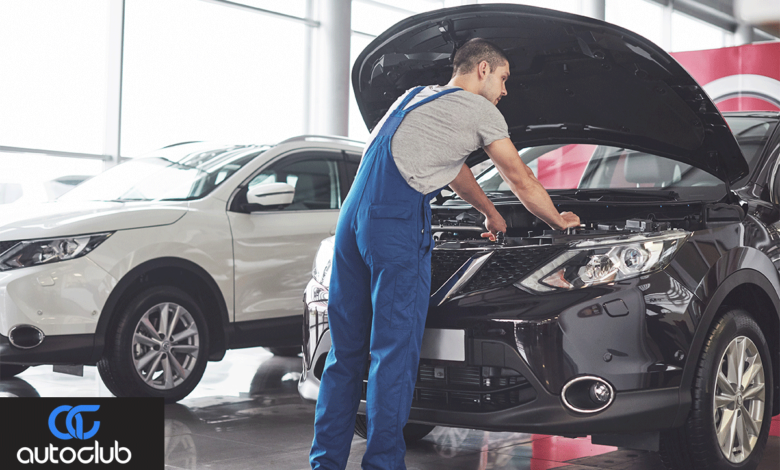7 Essential Tips: A Guide to Car Maintenance for New Owners

Introduction
Congratulations on your new car! As a proud car owner, it’s imperative to understand the significance of regular maintenance. Not only does it keep your vehicle in tip-top shape but also extends its life and ensures a smooth ride. This article, “A Guide to Car Maintenance for New Owners,” is the perfect starting point for you. Let’s dive into the nitty-gritty of car care.
A Guide to Car Maintenance for New Owners
Car maintenance is like health check-ups for your vehicle. It involves regular inspections, adjustments, cleaning, and replacements necessary to ensure the proper functioning and longevity of your vehicle. Imagine skipping doctor visits for years. Your health would deteriorate, right? Similarly, neglecting your car’s maintenance will lead to decreased performance, potential breakdowns, and expensive repairs down the road.
What is car maintenance?
Car maintenance is a routine process of checking, cleaning, and fixing parts of a vehicle to ensure it runs efficiently. This process might include oil changes, tire rotations, brake inspections, and more.
Why is it essential?
Regular car maintenance can:
- Enhance Safety: Detect potential problems before they become hazardous.
- Increase Lifespan: Keep your car running for more years.
- Boost Performance: Ensure your vehicle runs smoothly.
- Save Money: Prevent costly repairs in the long run.

Basic Car Maintenance Tips
The foundation of car care lies in some basic practices that every owner should be familiar with.
Checking fluids regularly
Your car relies on various fluids, such as engine oil, brake fluid, transmission fluid, and coolant. Regularly checking and topping these fluids ensures optimal performance.
Keeping tires properly inflated
Under-inflated tires can cause accidents, reduce fuel efficiency, and wear out faster. Regularly checking tire pressure can save you a lot of hassle and money.
Replacing air filters
A clean air filter improves fuel efficiency and prolongs engine life. It’s a small component, but replacing it periodically can make a big difference.
Regularly changing the oil
Oil lubricates the engine parts and prevents overheating. Regular oil changes are pivotal for a long-lasting engine.
Protecting Your Car’s Exterior
While the inner mechanics are crucial, the exterior of your car also needs tender love and care.
Cleaning and waxing
Regular cleaning eliminates dirt and debris, while waxing adds a protective layer against scratches and UV damage.
Dealing with minor scratches
Immediate attention to minor scratches can prevent rust and further damage. Using a scratch remover or seeking professional help is advised.
Ensuring Safety
Safety should be a top priority for every car owner.
Regular brake checks
A faulty brake system can be fatal. Regularly inspecting the brakes ensures you can stop your car when needed.
Checking lights and signals
Functioning lights and signals are crucial for night-time driving and to communicate with other drivers on the road.
Advanced Maintenance Techniques
For those who want to go the extra mile in car care.
Understanding the transmission
The transmission ensures that power is adequately distributed to the wheels. Regular checks can prevent expensive repair bills.
The importance of wheel alignment
Misaligned wheels can cause uneven tire wear and affect the car’s handling. Regular checks and alignments can save you money on new tires.
Planning Maintenance Schedules
Being proactive rather than reactive is the key.
Setting up a maintenance calendar
Just like reminders for important dates, setting up a car maintenance calendar can be handy.
Staying updated with recalls and updates
Manufacturers occasionally recall parts. Stay informed to avoid potential problems.
The Cost of Neglecting Maintenance
Skipping maintenance can have both immediate and long-term effects.
The impact on car value
A well-maintained car can fetch a higher resale value, while a neglected one might cost you dearly.
Long-term effects on performance
Persistent neglect can lead to decreased performance, reduced fuel efficiency, and more frequent breakdowns.
Preparing for Seasonal Changes
Every season has its challenges.
Winterizing your car
Winter can be tough on cars. Preparing your vehicle for freezing temperatures can make a world of difference.
Getting ready for summer
Extreme heat can affect battery life and tire pressure. Preparing your car for summer is just as crucial as winterizing it.
FAQs
What’s the most critical aspect of car maintenance? Regular oil changes are often considered the most crucial aspect of car maintenance as they ensure the engine runs smoothly.
How often should I check my car fluids? It’s a good rule of thumb to check your car fluids every month and before long trips.
Is car maintenance expensive? Regular maintenance can seem costly in the short term, but it prevents more expensive repairs in the future.
How often should I rotate my tires? Tires should be rotated every 6,000 to 8,000 miles to ensure even wear.
Can I perform car maintenance myself? While some tasks like checking fluids and tire pressure can be done at home, it’s advisable to get professional help for more complex tasks.
What should I do if my engine light comes on? If your engine light comes on, it’s crucial to get your car checked by a professional as soon as possible.
Conclusion
Taking the time to understand and implement regular car maintenance can save you time, money, and potential headaches in the long run. As a new car owner, embracing these habits early can ensure that your vehicle remains reliable, safe, and efficient for many years to come. Remember, a well-maintained car isn’t just a matter of pride; it’s also a matter of safety and economy. So, buckle up and embark on this journey of car care with our guide to car maintenance for new owners.

